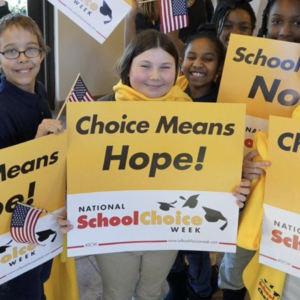Granite State parents now have more choices when it comes to education thanks to the Education Freedom Account program that opened up for applications on Friday.
More than 1,000 families had asked about available EFA programs before they came online, Commissioner of Education Frank Edelblut told NHJournal.
“We’re just glad we can offer educational opportunities to families who previously didn’t have access to them,” Edelblut said. “In a way, we’re just leveling the playing field.”
The EFAs give parents grants of, on average, $4,600 per pupil that can be used to pay for private school tuition, public school tuition for out-of-district placements, homeschool curriculum, educational therapies, and educational supplies.
School choice and EFAs have been a goal of Republican Gov. Chris Sununu for years. The GOP legislative majority rolled the program into this year’s state budget. Sununu told the Joshua Bartlett Center for Public Policy that EFA’s are not a partisan issue. Instead, it’s about parents being able to make the best decision for their children.
“We have great public schools here. But there are one, two, three, four percent of the population where it’s not ideal, and giving them that opportunity is huge,” Sununu said. “This isn’t about the traditional school choice battle. If you’re thinking about it that way, you’re way behind.”
Meg Tuttle, president of the NEA-NH, the state’s largest teacher’s union, is not opposed to the program. Yet she said the EFA program, as it currently stands, lacks critical oversight.
“Coming off the pandemic shutdowns this will probably be the most important school year in many students’ lives. Now is hardly the time to be diverting funds from their schools with zero accountability. This is a multi-million-dollar example of failed leadership that will ultimately hurt our kids,” Tuttle said.
EFA supporters dismiss the “accountability” argument, noting government-run schools receiving funding regardless of student outcomes and union-protected incompetent teachers are notoriously difficult to fire.
“The highest form of accountability is when schools are directly accountable to families who are empowered to choose their child’s school,” said Jason Bedrick, director of policy at EdChoice.
Sarah Scott, with the conservative Americans for Prosperity – New Hampshire, said the pandemic is a big reason some parents need the choice option. Many parents were left unhappy with their public school’s handling of the COVID-19 pandemic but could not afford any other option.
“The past year has shown the need for families to have more options and greater control over their children’s education,” Scott said. “We’re excited that thousands of Granite State students will be able to access an education that works for them and will continue working to empower every family with the ability to customize their student’s education experience.”
And, Edelblut said, one of the top reasons New Hampshire parents are looking into EFAs is the lack of access to remote learning at their local schools. “Whatever the reason — fear of the delta variant [of COVID-19] or getting better results with their students working from home — some parents believe remote learning is the right choice for their children. EFAs make it possible.”
Families who earn no more than 300 percent of the federal poverty level qualify for the program. That breaks down to $79,500 per year for a family of four, and families with children already in private school or homeschool can qualify for the program. This is one reason, Edelblut says, talk of EFAs undermining the public schools doesn’t match the data.
“Across the country, there are about 21 million ‘choice’ seats to fill, but only 1.3 million students using them,” Edelbut said. “Here in New Hampshire, we have 180,000 k-12 students, but only 1,000 to 2,500 are expected to use EFAs.”
More information about the program, and how to apply, can be found at the NH Freedom Account website, nhefa.com.




